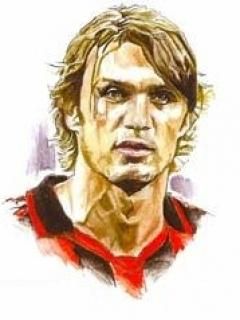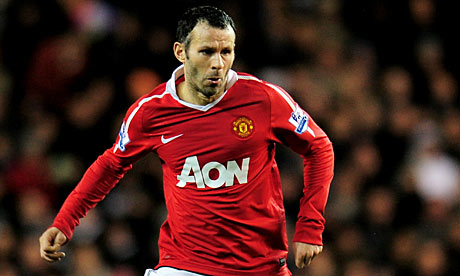
Of wines and winners in football, Legends and longevity
What is common to Ryan Giggs, Raul Gonzales, Paolo Maldini and Alessandro Costacurta apart from the trivial fact that they are multiple times Champions League gold medalists? If you answered that all of them are model professionals on the field, I would have to agree wholeheartedly, but the answer I’m looking for is a bit more subtle. All of them have played well into what is considered “past their prime” at the top levels of football.
It is a strange tryst that destiny has with some footballers, that it’s too good to be called anything but romance. It may, at times seem that some footballers are luckier than the others, to be able to play 90 minutes a match, 30 games a season, without natural ageing taking a toll on their bodies. Most often than not, these players are not the strongest, or the quickest. But they make up for the lack of physical attributes with something that cannot be taken away by time. What is it?
Can you imagine being the best left back in the world by a country mile for a whole decade, tormenting almost every other attacker who came up against you? If you think that is a hard job, imagine shifting to the centre, and doing an as good a job, if not better at the ripe age of 33? Impossible, you might say. But Paolo Maldini did just that. In fact, when he retired at the ripe old age of 40, he had still played 32 games for Milan in his last season.

Paolo Maldini…Age no bar.
Now think of a winger, who terrorised all defenses he came across, and was among the top footballers of his time in his position. Doing it for almost two decades may seem a tiring preposition. But he went one further and became a mainstay of the team’s centre midfield after all those scintillating years as the league’s best left winger. He was so good, that he featured in UEFA’s Champions League Team of the Season. Yes, you guessed it right, the player under consideration is Ryan Giggs, the most decorated footballer(club level) ever.
Without giving you any more examples, let me dive straight into the discussion at hand. What is it that helps these footballers perform at the highest levels at ages when most footballers would hang up their boots and take to coaching, commentating or fishing? It boils down to one important quality that may not be evident in most footballers to an average fan – intelligence. Something that only grows with time, unlike physical attributes which regress with time, as a player ages. Of course, a basic level of fitness is still required to step on to the field, as Maradona would tell you, but it need not be emphasised much.

Ryan Giggs – A sea of trophies, the hunger still remains
As a player grows older, his legs start tiring quicker, his eyes aren’t sharp enough, his acceleration and agility drops, and in some cases, his overall pace is hampered, and his strength drops as he is not able to dedicate the same amount of energy to workouts. Usually, this means the end to a footballer’s career, however talented he may have been. The likes of Gabriel Batistuta, Pavel Nedved and Davor Šuker retired early, even though it may be harsh to suggest that they went out with a whimper. But the likes of Javier Zanetti, Cafu, Alessandro del Piero and Paul Scholes carried on. They carried on knowing well that they had it in them to perform week in, week out at the top levels of the footballing pyramid.
In fact, history is sprinkled with such examples, from Alfredo Di Stéfano to John Barnes to Luis Figo. Impossible as it may seem, Javier Zanetti is still a first choice player for Internazionale FC at the age of 37, having made 49 appearances in all competitions last season.
It has been often said that the beauty of football transcends mere trickery, pace and skill. And I cannot agree more. A footballer’s primary asset is his footballing brain. No amount of skill, no amount of variations in moves will make up for a lack of intelligence. Knowing how to use the skills you possess is more important than possessing a high degree of skill. And that is precisely why these footballers under discussion have survived the test of natural progression, time and again.

Pavel Nedved – A lifetime of achievements.
The moment Maldini and his manager realised that he no longer had the legs to run up and down the flank for 90 minutes week in and week out, he was shifted to the centre, where his superior sense of positioning and tackling was made complete use of. He traded a spot which required a large reservoir of stamina, to one which required high technical finesse, which he possessed in abundance naturally. Similar is the case with John Barnes and Ryan Giggs. They shifted to centre midfield once they started losing their pace, which was their stake for being the best wingers in the league. Out went the emphasis on pace, and into the limelight came their playmaking ability down the middle. Barnes was highly successful in his playmaking role in the late 80s and the early 90s, and Ryan Giggs is still “tearing you apart”, albeit now down the middle.
The ones who survived were the ones who made the best use of their abilities, and used their talent to the best of their abilities. Luis Figo was a regular till he retired, and even though he lost a couple of yards of pace, he could still whip in those inch perfect crosses and could still leave you for dead with his trickery on the ball. David Beckham still plays a right sided midfielder, and even though he primarily plays in the US, he was fairly good in his loan spell to Milan. Cafu and Zanetti moved on to more defensive roles as their pace regressed, and were defensive mainstays of their teams, troubling quite a few attackers.
Though it may be simple to assume that a superior level of intelligence is all you need to extend your career at the top, it is easier said than done. Injuries can easily play spoilsport, however immensely talented and intelligent you are. I can’t think of a better example than Marco van Basten, whose glorious career was cut short by injuries. What a fantastic record he might have amassed, we could only imagine! Luis Ronaldo, who during his peak could go circles around any defense, was another of the footballers whose career conceded to a series of injuries. He quit European football aged 32, and we are left to speculate on what could have been of a great career.

Roanldo and Figo – A tale of contrasting fortunes, and what might have been!
“The most important thing for a forward is speed of thought.“, as Eto’o says, “Top players read the game.” There’s only so much that can be achieved without a proper reading of the game. As a sporting legend said, “Talent wins games, but teamwork and intelligence wins championships.” Without a brain in place, everything one possesses comes to waste, and football loses it’s significance. While the ordinary men fall by the wayside, the true legends continue marching on, for they are the carriers of the torch, and they shall be the models for tomorrow’s aspiring footballers. Let them grow up wanting to emulate Ryan Giggs, who was an integral part of a team that won 22 major trophies, or Paolo Maldini, who won an astonishing five Champions League titles!